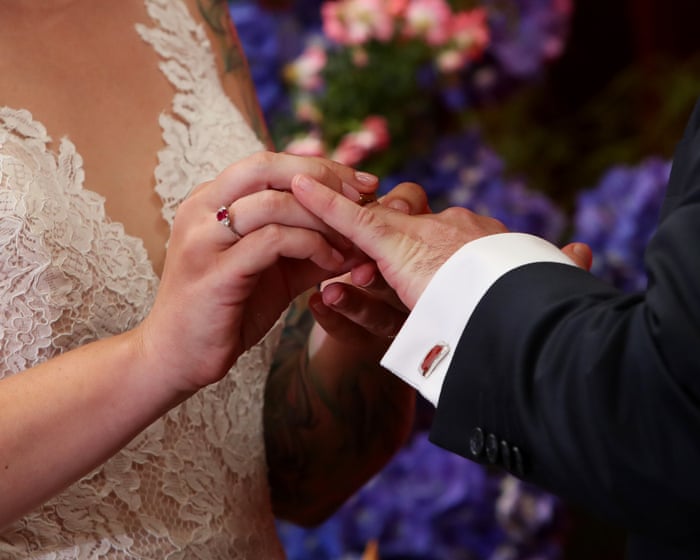Andrea Long Chu has been criticized for breaking the rules—she treats works of fiction as if they were essays or personal confessions rather than artistic creations. “It’s true that I often approach a novel as an argument,” she writes in the introduction to Authority, a collection of her essays and reviews published between 2018 and 2023 in outlets like N+1, Bookforum, and New York Magazine. Long Chu, who won a Pulitzer Prize for criticism in 2023, believes that “all novels reflect the hidden subjectivity of their authors,” and pretending otherwise is just indulging in a “harmful kind of commodity fetishism.” In her reviews, books expose their authors, always revealing some core flaw—whether it’s immaturity, shortsightedness, or just plain dullness.
Her approach leans into psychoanalysis, making for entertaining reading. She diagnoses Hanya Yanagihara with a case of “Munchausen by proxy,” arguing that Yanagihara’s bestselling novels A Little Life (2015) and To Paradise (2022) thrive on the “misery principle”: “horrible things happen to people for no reason,” and the author acts like a “sinister caretaker, poisoning her characters only to nurse them back to health.” She points out Tao Lin’s “infantile” idealization of mothers and girlfriends in his autofiction and calls the scatological themes in Ottessa Moshfegh’s novels “deeply juvenile.” Moshfegh’s medieval bloodbath Lapvona (2022) fails to shock because, as Long Chu puts it, “You can’t épater le bourgeois without an actual bourgeoisie.” She dismisses Moshfegh as “the leading coprophile of American letters,” trying too hard to prove she’s not a prude.
When reviewing Bret Easton Ellis’s “deeply unnecessary” 2019 essay collection White (which she describes as “not even glorified, padded-out blog posts, just regular, normal-sized blog posts”), Long Chu laments his slide into grumpy paranoia, suggesting the American Psycho author is starting to resemble his most famous character. “At some point,” she jokes, “you have to wonder if a man who sees 1984 everywhere is just stuck in the ’80s.”
Her takedown of Curtis Sittenfeld’s 2020 novel Rodham—which imagines a world where Hillary Clinton never married Bill—is a scathing critique of shallow “girlboss” feminism. She calls it “an unpolitical book by an unpolitical author about… an unpolitical person,” arguing that Sittenfeld’s complacency mirrors her protagonist’s, a woman whose “true talent lies in convincing college-educated people that her ambition (and by extension, theirs) is a sign of real competence.”
A recurring target in these essays is the successful author who complains about oversensitive young leftists and online outrage. This includes Ellis, Moshfegh, Maggie Nelson (whose gripes about censorship in On Freedom are dismissed with an exasperated “boring“), and Zadie Smith, whose “habit of siding with the least sympathetic party in any situation often pushes her toward the political center.” Long Chu provocatively suggests this tendency is performative, compensating for Smith’s failure to write a defining work of social realism. Since Smith has “never actually excelled at creating the kind of relatable, flawed characters she champions,” Long Chu argues, she makes up for it with a lofty “both-sides” stance that suits her image as a serious, above-the-fray liberal humanist.
Long Chu is equally blunt in criticizing the publishing industry’s patronizing habit of overhyping minority voices as a way to atone for past exclusions. (“This is like responding to pigeonholing by overvaluing the pigeon.”) In a refreshingly clear-eyed essay on Asian American fiction, she questions whether the flood of stories about immigrant struggles and identity crises truly represents progress—or just another kind of limitation.Diaspora novels often share little beyond their hesitant, directionless protagonists and a general sense of melancholy. The much-discussed theme of identity often boils down to a faint, lingering homesickness, while the sharp awareness of racial ambiguity has faded into something more ordinary.
Alongside literary criticism, Authority includes analyses of TV shows and video games, as well as a witty take on Andrew Lloyd Webber’s musical flaws—his success as a composer relies not on persuasion but sheer force. The book also features personal essays, such as one on vaginoplasty, a fictionalized account of transcranial magnetic stimulation for depression, and On Liking Women, a widely read 2018 piece about the author’s gender transition that launched her writing career. In it, Long Chu draws parallels between 1970s political lesbianism and today’s anti-trans activists, accusing them of disguising plain moral discomfort as ideology.
In the past, such personal writing might have felt out of place in a book of criticism, but today it fits right in. As Long Chu notes in the title essay, critics now openly bring their own perspectives into their work. Tracing debates about critical authority from the 18th century onward, she argues that the idea has always been vague and inconsistent. Today’s critic isn’t just an expert but a storyteller, offering experiences for readers to share.
This approach makes sense. While Long Chu’s style isn’t as casual as fellow critic Lauren Oyler’s, it has a similar first-person honesty, balancing boldness with moments of self-doubt. Her frequent qualifiers—“Perhaps I’m being ungenerous,” “What I mean is…,” “If it sounds like I’m saying… I suppose I am”—can feel overdone, and some phrases, like calling things “boring” or introducing a quote with “The following is an actual sentence,” come off as oddly juvenile.
In a postscript, Long Chu, now in her early 30s, cringes at her younger self’s “bloggy” tone, calling it outdated even then. This unease reflects a broader challenge for writers raised to distrust authority—especially in tone—and shaped by the self-aware language of online culture. Now, they must figure out how to sound smart without being overbearing.In today’s media environment that often dismisses intellectualism, one survival tactic is to shrink yourself. What stands out about Long Chu’s writing voice is how she blends expertise with childlike curiosity—a duality that resonates with her readers. These essays unfold like winding journeys, full of complex detours punctuated by sharp moments of clarity. There’s a special skill in keeping readers engaged while working through ideas on the page in real time. Maybe real authority comes from this kind of shared intelligence, and what we call good judgment is simply feeling at home in someone else’s way of thinking.
Authority: Essays on Being Right by Andrea Long Chu is published by Hutchinson Heinemann (£20). To support The Guardian, you can order your copy at guardianbookshop.com. Delivery charges may apply.



